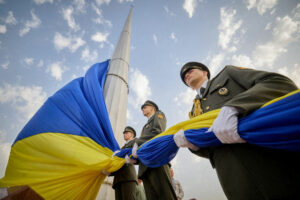Ex-German Chancellor Gerhard Schröder mocked for Ukraine comments
The Social Democrat who governed Germany until 2005 has long had a cordial relationship with the Kremlin.

BERLIN — Germany’s former Chancellor Gerhard Schröder has accused one of the sides in the Russia-Ukraine conflict of “saber-rattling.” Guess which one.
On an episode of his podcast released Friday, Schröder, who was German chancellor from 1998 until 2005, said that Foreign Minister Annalena Baerbock should not have visited Kyiv before she went to Moscow last week, saying the Ukraine trip could be seen as “provocation” in Russia.
Schröder — chairman of Nord Stream, the Russian-owned, Swiss-based firm that owns pipelines bringing Russian gas to Europe, and who is a long-time friend of Vladimir Putin — went on to say he hoped “the saber-rattling from Ukraine will stop.” He added that he thought Ukrainian criticism of Germany’s refusal to supply the country with weapons was “really outrageous.”
Earlier this week, Berlin was ridiculed for sending 5,000 protective helmets to Ukraine rather than weapons — prompting Kyiv Mayor Vitali Klitschko to ask if the next delivery would be of pillows.
Schröder was roundly mocked for his comments.
“When 100,000 combat-ready Russian soldiers encircle Ukraine militarily, that is a concrete threat,” Germany’s former Europe Minister Michael Roth wrote on Twitter. “People who clearly state and warn against this are not warmongers,” Roth added. “Wanting to protect and defend against it has nothing to do with saber-rattling.”
“Gerhard Schröder accuses Ukraine of ‘saber-rattling.’ But perhaps it’s just the loose screws in his head that are rattling,” tweeted Jan Böhmermann, a well-known satirist.
Christoph Hoffmann, a member of parliament for the liberal Free Democrats (FDP) — part of Germany’s governing coalition along with Schröder’s Social Democrats — added a caption to a story about Schröder’s remarks: “His master’s voice.”
It’s not the first time Schröder come under attack for his stance on Russia.
In 2018, the Wall Street Journal called him “a luxury-loving, paid-up, swaggering instrument of Vladimir Putin,” arguing there was no reason he should not be sanctioned in the same way as Russian oligarchs.























